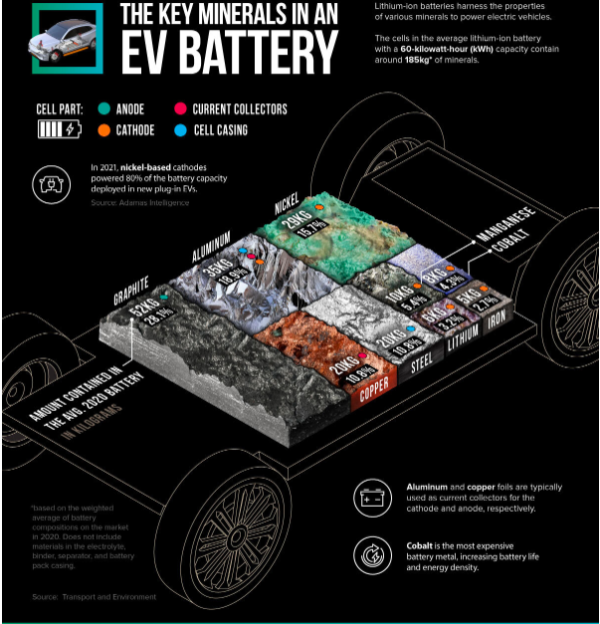In our “Ask an Expert” series, MCE specialists take a deep dive answering questions and sharing insights about a specific topic or program. Do you have a burning question about energy or MCE’s work? Let us know at communications@mceCleanEnergy.org.
How long do the batteries in EVs last?
That one’s easy! The California state government requires EV batteries to last at least 150,000 miles, although experts estimate they will last upwards of 200,000 miles.
What minerals are used in EV batteries?
EV batteries are primarily lithium-ion and include nickel, lithium, cobalt, graphite, copper, and manganese. EV batteries also require rare earth metals such as neodymium, which is used to create permanent magnets and allow for longer range batteries.
What are the environmental impacts of an EV and its battery compared to an internal combustion engine (ICE) vehicle?
Unlike ICE vehicles, EVs produce no tailpipe emissions so they are not contributing to air pollution or local greenhouse gas emissions (GHGs). However, more GHGs are produced from the manufacturing of an EV compared to an ICE vehicle due to minerals required to make the battery. According to Reuters, Americans have to drive an average of 13,500 miles in their new EV for it to be more environmentally friendly than an ICE vehicle. This number varies based on the size and efficiency of the EV battery, the fuel economy of the ICE car used for comparison (Reuters used a Toyota Corolla), and the electricity source for the EV battery.
(Source: Elements)
The electricity used to power your EV is especially important. The cleaner the source of your fuel, the fewer miles you have to drive for your EV to be more environmentally friendly. A common myth is that EVs are not cleaner if they are being fueled by “dirty” (i.e., non-renewable) energy. However, studies that looked at fuel sources from across the United States show that electric pickup trucks emit less CO2 than the average gasoline-powered truck.
MCE’s standard Light Green service is 60% renewable which is around 40% cleaner than the national average. EV drivers that charge with MCE’s Deep Green 100% renewable energy significantly reduce the miles they need to drive to be more environmentally friendly.
Are EV batteries recyclable?
The short answer is…yes! New companies across the United States like Redwood Materials (Tesla’s primary battery recycling company), Li-Cycle, and Ascend Elements are developing methods to recycle EV batteries. In some cases up to 95% of the materials in an EV battery can be recycled. While this technology is still growing, the methods for recycling are being improved as EVs become more popular.







